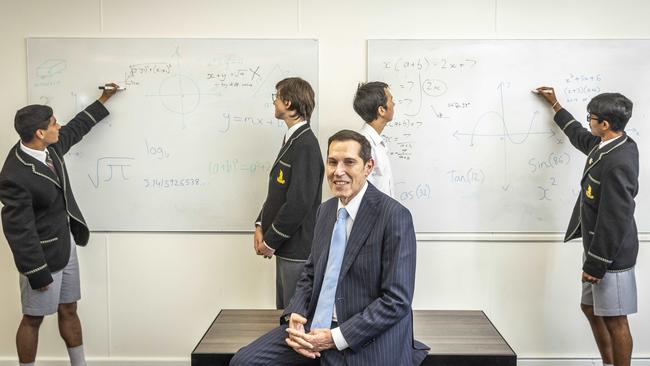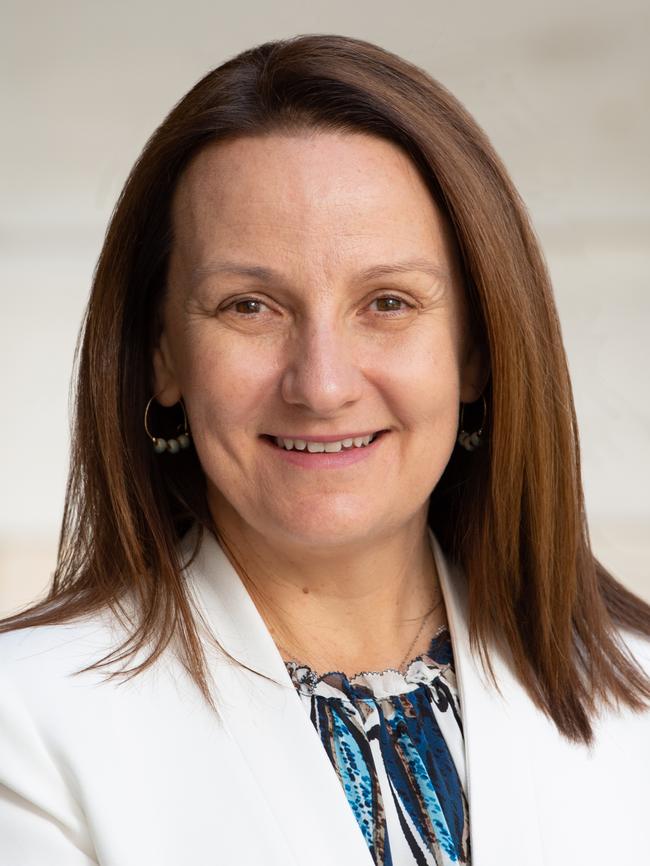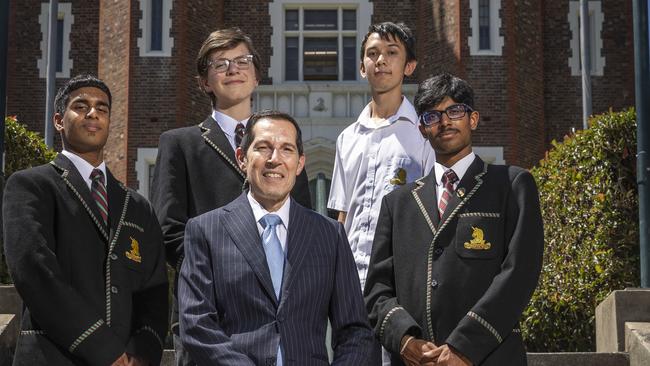NAPLAN results reveal Australia’s top maths schools, as educators warn against ‘I’m not smart’ attitude
Find out where to send your child to get the best results in maths. Search the table.

News
Don't miss out on the headlines from News. Followed categories will be added to My News.
Top educators say STEM is the key to future success, as we reveal the nation’s top schools that will put your child on the path to those high-paying jobs that will soon command salaries of $100k+ straight out of university.
Public schools were the big winners in last year’s Year 9 NAPLAN numeracy results, with only two private schools in the top 20, but all were academically selective in their student intake.
New South Wales recorded the highest tally all around, and can boast 18 of the country’s top 20 schools.
Victoria’s top 20 had the greatest variance in scores, with 98 points separating first and last place, while SA’s had the least with 42 points – although Victoria still outpaced SA, with 107 points’ difference between each state’s top schools.
Queensland Chief Scientist Professor Kerrie Wilson said there were “few careers that maths and numeracy skills don’t play into”, and that its importance would only grow.
“What mathematics gives you is a good understanding of how problems are constructed and what the options are for solving a problem,” Prof Wilson said.

“While you don’t need a PhD in pure or applied maths to be a computer programmer, higher level quantitative skills and abstract thinking skills all help people solve problems and think outside the box.
“Already, some of the most popular and highest-paying jobs have a strong maths underpinning. When you start talking about future careers, that gets laid on even further … Data science is being employed by some of our biggest companies, so the jobs of the future will really require these broader maths skills.”
The federal government’s 2024 Jobs and Skills Report predicted the second-largest growing employer in the next 10 years would be “professional, scientific and technical services”, encompassing engineering and computing.
These fields will add another 254,600 workers and represent 9.7 per cent of the workforce, the largest proportion behind healthcare and social assistance.
Currently, the average graduate salary for an engineering job is $75,000, while computing and information systems both hover at $71,000, according to the QILT Graduate Outcomes Survey.
Prof Wilson warned against stereotyping interest in maths as “nerdy” or “bookish”, instead encouraging positive associations like good pay and job security.
She also encouraged schools and universities to have a “national conversation” about fostering these skills as early as possible.
Top schools from each state and territory cited accelerated learning programs, a focus on helping students catch up, and extra-curricular programs.
James Ruse Agricultural High School in Carlingford, Sydney, topped the country with a numeracy score of 785, nearly double the state average of 410.
Principal Matt Dopierala credited the “high expectations of the entire learning community” and said there was “pride among students in being able to problem solve and study the highest levels of mathematics”.
At Victoria’s top performer, Melbourne High School, all students are encouraged to take maths in Year 12, principal Anthony Mordini said, while algorithmics was “one of the school’s most popular subjects”.

“Some people have this fear of mathematical problems, but we apply maths every day whether we know it or not,” Dr Mordini said.
“Students will sometimes say, ‘I’m not smart’, but then you have say, ‘We have to work on this’. You also have to encourage teachers not to walk away from difficulties, and perhaps try to present information or the problem in a different way.
“Even students who lean towards the humanities, we encourage them to take maths because with almost any job in this day and age, you need to be reasonably data-savvy.”
More Coverage
Originally published as NAPLAN results reveal Australia’s top maths schools, as educators warn against ‘I’m not smart’ attitude




